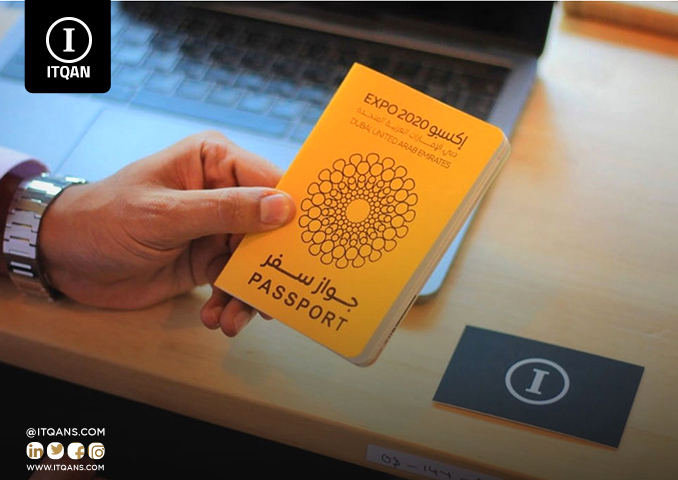Establishing a company in Dubai is an important strategic step towards success in the business world, thanks to the advanced and investment-friendly commercial environment that the emirate provides. Dubai is considered one of the most prominent global business destinations, thanks to its excellent infrastructure, strategic location, and supportive government facilities. The procedures for establishing a company in Dubai include several main stages, starting with determining the type of company and its activity, and choosing the appropriate free zone or commercial licenses. Investors must submit a set of legal and administrative documents, including a license application, approval of the company name, and preparation of the articles of association. Legal and professional consultations play a key role in facilitating the procedures for establishing a company in Dubai and ensuring compliance with local legal requirements. By providing the necessary support and advice, new companies can start strongly towards achieving their business goals in one of the most competitive markets in the world.

Procedures for establishing a company in Dubai
Establishing a company in Dubai requires following a set of basic steps to ensure compliance with legal and administrative requirements. The following are the main procedures:
- Determine the type of company: The type of company (sole proprietorship, limited liability company, joint stock company, etc.) must be determined based on the nature of the activity and the size of the business.
- Choosing a trade name: Choose a suitable trade name and submit it to the relevant authority for approval. The name must be unique and comply with local laws.
- Determine the location and type of license: Determine the location of the company, whether in a free zone or public business areas, and choose the appropriate type of license (commercial, industrial, professional, etc.).
- Preparing legal documents: Preparing and signing the necessary legal documents, such as the articles of association, the partners’ contract, and internal agreements. In the case of limited liability companies, a notarized incorporation agreement must be prepared.
- Submitting applications: Submitting license applications and required documents to the relevant government agencies, such as the Department of Economic Development or the authority responsible for the free zone.
- Obtaining approvals: Obtaining approvals from relevant government agencies, such as local and security authorities, according to the type of activity and location.
- Opening a bank account: Open a bank account in the name of the company and deposit the required capital, according to the licensing requirements.
- Company Registration: Register the company and obtain the commercial registration and tax number. The final step may also include obtaining work and residence visas for employees.
- Complete the final procedures: Complete any additional requirements, such as registering with local chambers of commerce or business associations. These steps are essential to ensure a smooth start-up and compliance with Dubai’s legal requirements.
Types of companies in Dubai
Here is a table showing the types of companies in Dubai and their main features:
| Type | Description | Features |
|---|---|---|
| Limited Liability Company (LLC) | A company with a limited number of partners (from 2 to 50). The partners’ liability is limited to the capital they contribute. | – Easy to set up. – Limited liability. – Suitable for large businesses. |
| Public Joint Stock Company (PJSC) | A company that can have an unlimited number of shareholders. Its shares can be traded on a stock exchange. | – Attract multiple investors. – Ability to raise large amounts of capital. – Public trading of shares. |
| Private Joint Stock Company (PRJSC) | A company similar to a public joint stock company but whose shares are not publicly traded. | – Limited liability. – Suitable for large businesses. – Easy to attract investors. |
| subsidiary | A subsidiary of a parent company. It has an independent legal personality. | – Allows expansion of activities into new markets. – The parent company retains control. |
| Sole Proprietorship | A company owned by one person who bears all the responsibilities. | – Ease of establishment. – Full ownership. – Flexibility in business management. |
| Free Zone Company | A company operating in one of the free zones in Dubai and benefiting from tax advantages and trade facilities. | – Full foreign ownership. – Tax exemptions. – Customs facilities. |
| Trading company | A company that focuses on business activities, such as buying and selling. | – Business friendly. – Specific registration and licensing procedures. |
| Industrial company | A company operating in the industrial sector, such as manufacturing and production. | – Suitable for industrial activities. – Customs discounts in some free zones. |
| Professional company | A company that provides professional services, such as consulting or law. | – Can be fully owned by foreigners. – Special license for professional activities. |
Each type of business determines the options available based on the business activity, incorporation requirements, and taxes.
Conditions for establishing a company in Dubai
Establishing a company in Dubai requires fulfilling a number of basic conditions and requirements to ensure compliance with local laws and regulations. Here are the most important conditions:
- Choosing the type of company: The type of company must be determined according to the nature of the activity and size, such as a limited liability company, a joint stock company, or a sole proprietorship.
- Determine the trade name: The trade name must be legally compliant, not used, and does not contain prohibited words. The name must be submitted to the competent authorities for approval.
- Determine the business activity: The business activity must be precisely defined, as the activity determines the type of license required and affects the incorporation requirements.
- Location and Office: The location of the company must be determined, which can be in a free zone or a commercial area. An office or commercial space must be rented that is suitable for the company’s activity.
- Licensing: Obtain the appropriate license from the Department of Economic Development or the responsible authority in the free zone, such as a commercial, industrial or professional license.
- Legal Compliance: Ensure compliance with all local laws and regulations, including tax and insurance requirements.
- Visas and Licenses: Submit visa and residency applications for employees, if required.
- Registration with government agencies: Registering the company with the relevant government agencies, such as the Chamber of Commerce and the Companies Registry.
- Financing and Capital: The required capital must be deposited in a bank account in the name of the company. The amount of capital varies depending on the type of company and activity.
Legal Documents
Submitting the required legal documents, such as:
- Articles of Association (for limited liability companies).
- Partners Agreement (for entities with partners).
- Copy of passport and visas for investors and managers.
- These requirements are essential to ensure that the incorporation process runs smoothly and complies with the legal requirements in Dubai.

Advantages of establishing a company in Dubai
Establishing a company in Dubai offers many advantages that make it an attractive destination for investors and businesses. Here are the most prominent of these advantages:
- Advanced Business Environment: Dubai offers modern infrastructure and world-class facilities, which facilitate business operations and enhance efficiency.
- Flexibility in licenses: Investors can choose from a variety of commercial, industrial and professional licenses, allowing specialization in different activities.
- Tax incentives: Dubai offers an attractive tax environment, including corporate tax exemptions in many free zones and no income tax for individuals.
- Ease of procedures: Dubai simplifies the incorporation procedures through fast registration processes and digitization of many steps, reducing the time and effort required to start a business.
- Access to global markets: Dubai’s strategic location offers the advantage of proximity to major markets in Asia, Europe and Africa, enhancing opportunities for international expansion and growth.
- Diversity of business zones: Dubai offers a range of free zones and commercial zones that offer various benefits such as 100% foreign ownership and customs facilities.
- Security and Stability: Dubai provides a stable political and economic environment, which contributes to enhancing confidence and security for investors.
- Advanced Logistics Life: Dubai offers advanced logistics services, including advanced airports and ports, facilitating the movement of goods and trade. These advantages provide investors with ample opportunities for success and growth in a dynamic and advanced business environment.
Concluding our article on the procedures for establishing a company in Dubai , it is clear that Dubai provides an exceptional business environment and advanced commercial advantages for investors and entrepreneurs. By following the right procedures, investors can benefit from advanced infrastructure, regulatory facilities, and tax incentives, which contribute to achieving success and growth. The process begins with determining the appropriate type of company and business activity, then moving to the registration and licensing stages, and meeting all legal and administrative requirements. These steps require careful planning and adherence to local standards to ensure a smooth and efficient establishment. Thanks to the government support and numerous advantages, Dubai is an ideal destination for starting and expanding businesses. By taking advantage of specialized advisory services, new companies can confidently set off towards achieving their business goals and contributing to the emirate’s dynamic economy.
Frequently asked questions about the procedures for establishing a company in Dubai
What is the first step to starting a company in Dubai?
The first step is to determine the type of company and its activity. You must decide whether to establish a limited liability company, a joint stock company, or any other type based on the requirements of the activity and the size of the business.
What documents are required to establish a company in Dubai?
Essential documents include: investors’ passports, residence visas, articles of association, no-objection certificate (if required), trade name approval, and business plan.
Should foreign companies have a local partner?
In some cases, the law requires a 51% local partner for limited liability companies, but companies established in free zones can benefit from full foreign ownership.
What are the advantages of free zones in Dubai?
Free zones offer benefits such as 100% foreign ownership, tax exemptions, customs facilities, and simplified establishment procedures.
















